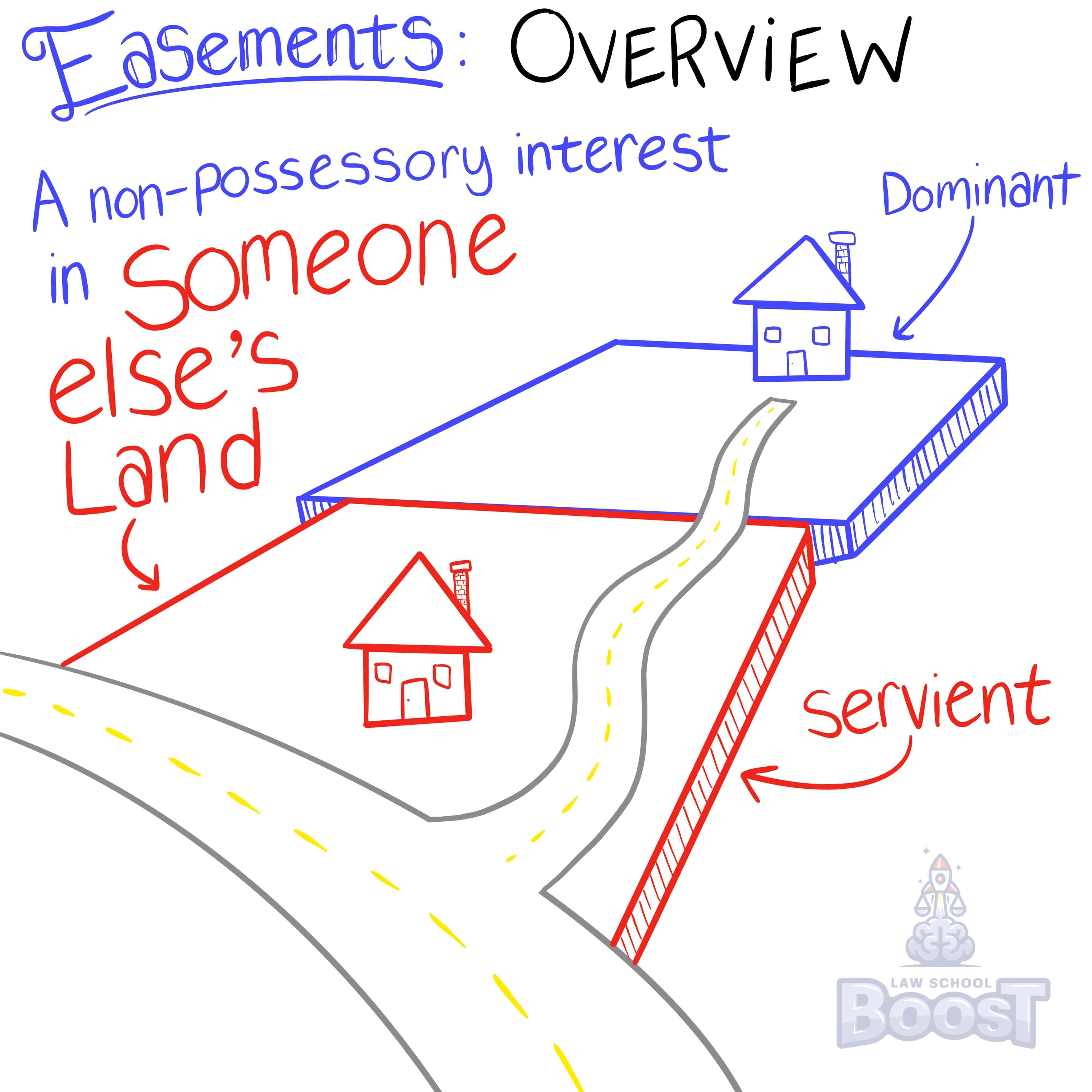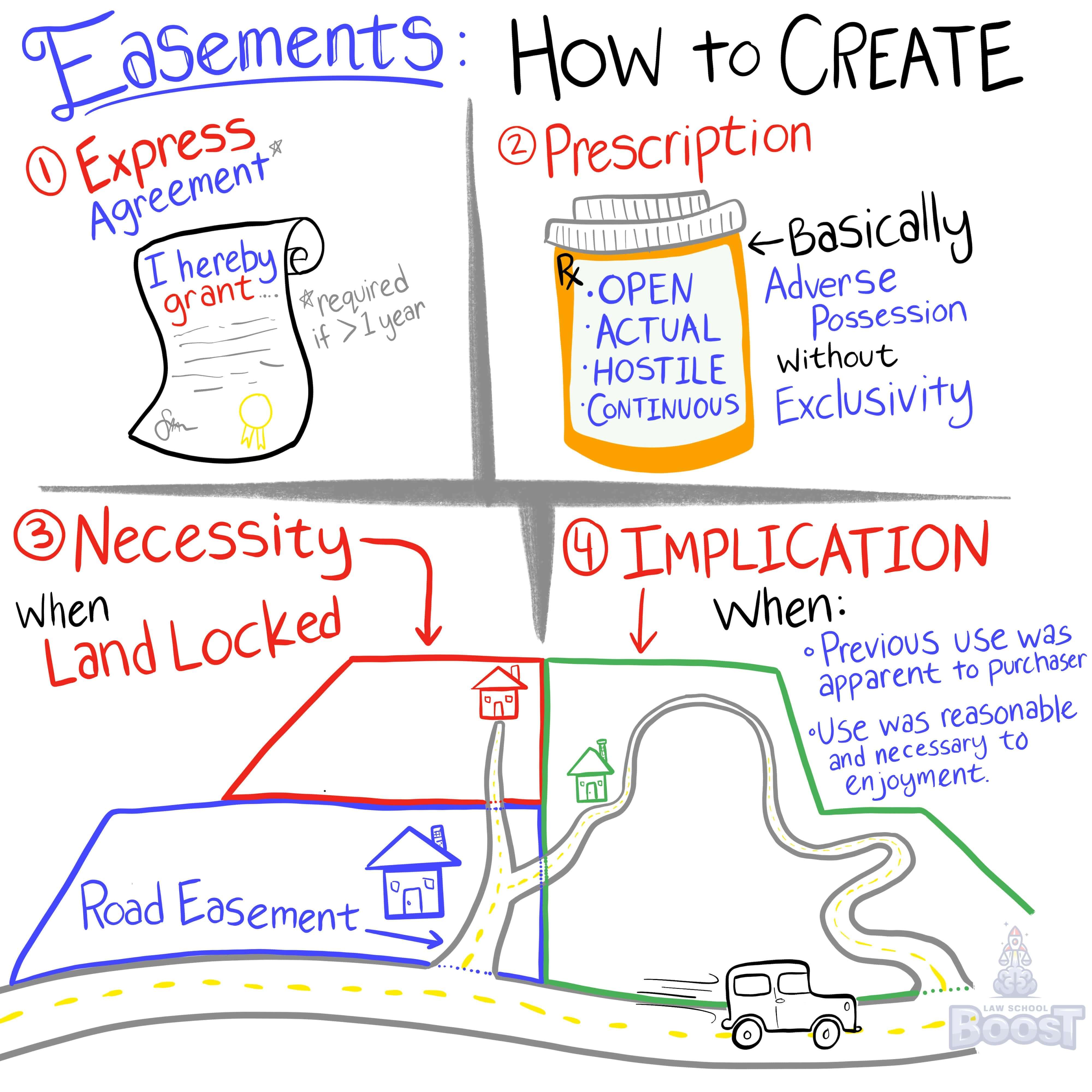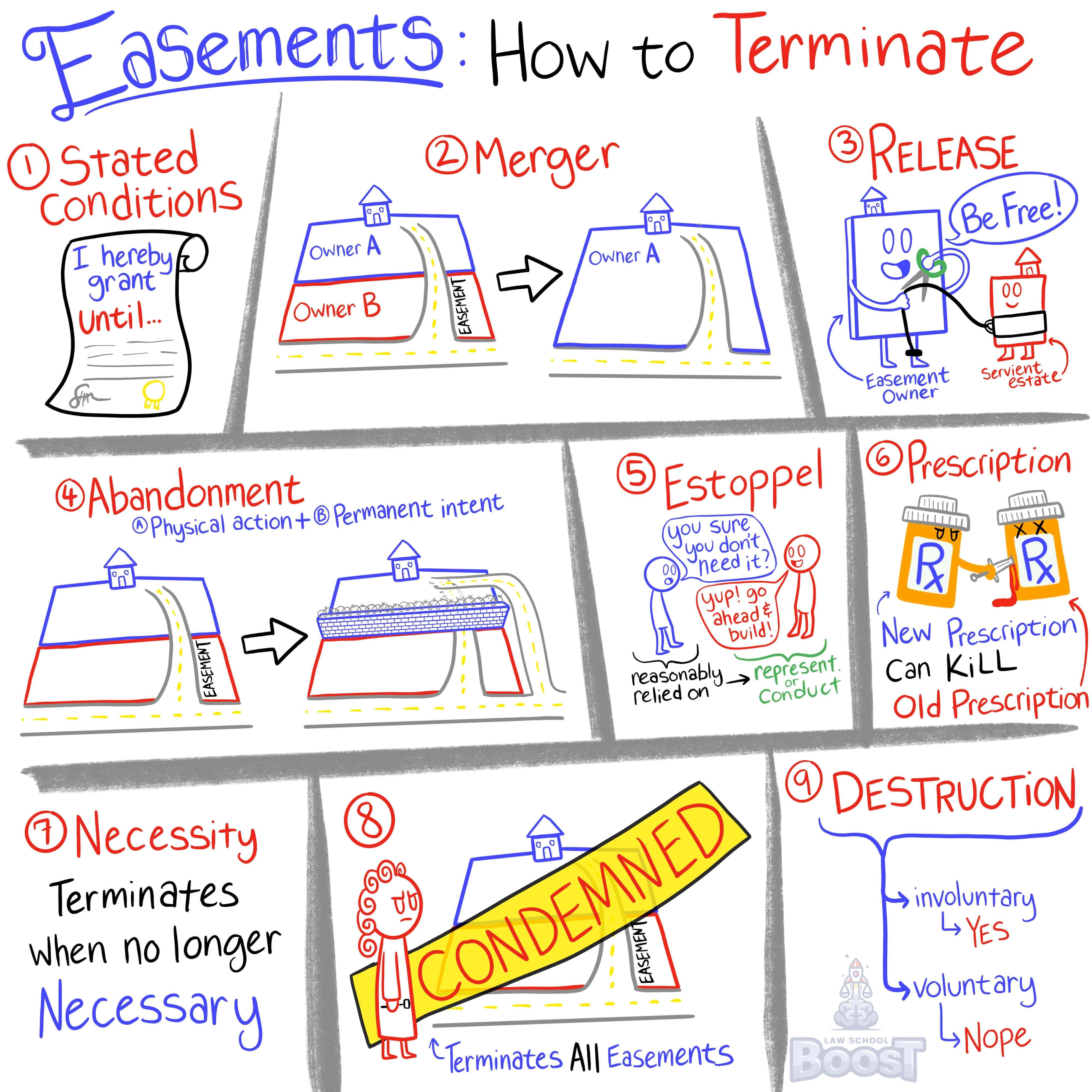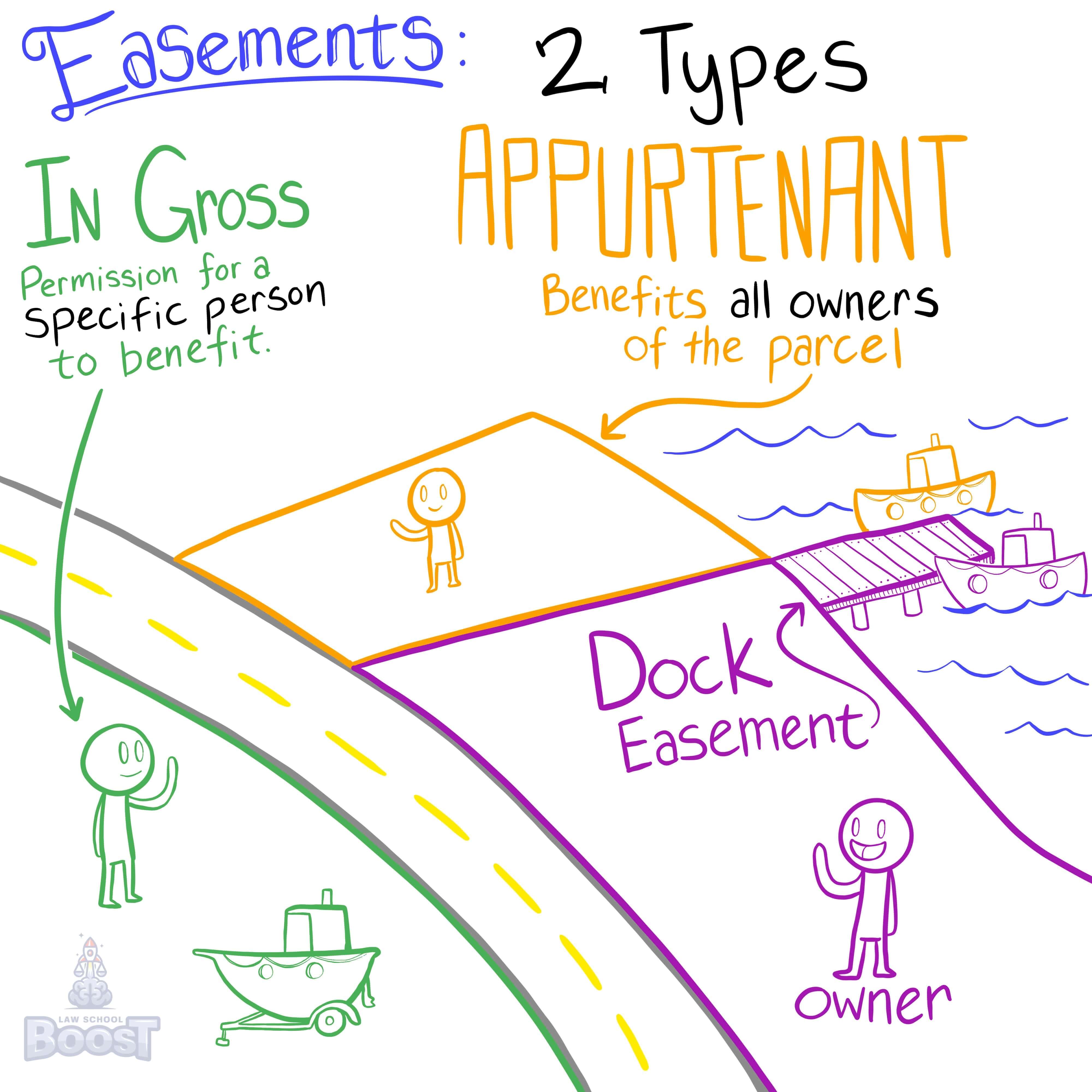😀
Real Property • Easements
PROP#118
Legal Definition
An easement may, itself, specify how it terminates via its own terms and conditions.
Plain English Explanation
Easements need not be perpetual and infinite. Some easements include self-destruct terms that terminate the easement after a period of time or some circumstance is met. These are easy to spot on exams, which means they aren't as commonly tested. Why? Because they'd need to not only explicitly state the terms that self-terminate the easement, but then restate them in the fact pattern so you know if they happened.
Visual Aids




Related Concepts
How can an easement be terminated?
How is an easement created?
How is an easement terminated via abandonment?
How is an easement terminated via destruction or condemnation?
How is an easement terminated via estoppel?
How is an easement terminated via prescription?
How is an easement terminated via release?
How is an easement terminated via unity of ownership?
If the holder of an easement misuses it, does the easement terminate?
In assessing an easement, who has a duty to make repairs?
In assessing a property law issue, how may a license become irrevocable?
In assessing a property law issue, what is a license?
What constitutes a valid easement by express grant?
What is an affirmative easement?
What is an easement?
What is an easement appurtenant?
What is an easement by prescription and how is it acquired?
What is an easement in gross?
What is a negative easement?
What is the difference between a license and an easement?
What is the result of a failed attempt to create an easement?
When does an easement by express reservation arise?
When does an easement by necessity arise?
When does an easement by necessity terminate?
When may an easement be implied without preexisting use?
When may existing use create an implied easement?


